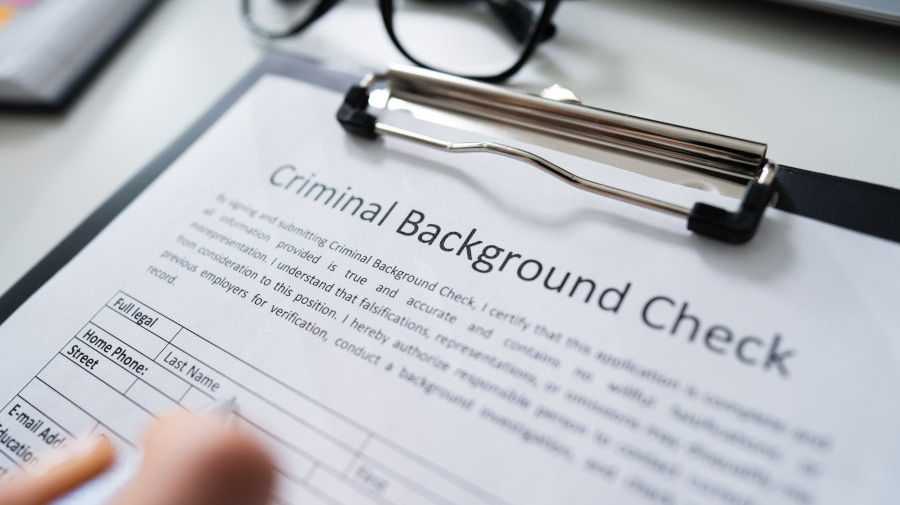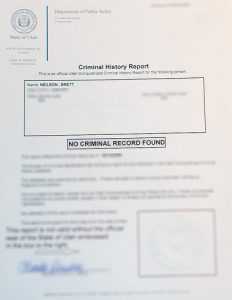
Expungements in California – California Penal Code 1203.4
California law allows certain individuals to have their criminal records expunged. Expungement allows for a person to be released from “all penalties and disabilities” associated with the conviction.
Legal Effect of Expungement
An expungement is different than having a person’s criminal records sealed or destroyed, a remedy that is available when a defendant was arrested but the prosecutor never filed charges, the defendant had the case dismissed or the defendant was found not guilty after a jury trial. When a record is expunged, the defendant’s plea of guilty or no-contest or his or her conviction is set aside by the judge, a new plea of not guilty is entered and the judge dismisses the case. However, an expungement will not prevent a court from considering the offense for the purposes of enhanced penalties.
Benefits of Expungement
Having your criminal record expunged provides numerous benefits to individuals. California law prohibits employers from asking about any arrests or criminal proceedings that did not result in a conviction, referrals to diversion programs or arrest records that did not result in conviction.1 This helps maximize the person’s ability to acquire a job and be a more desirable candidate. Additionally, expungement can allow a person to acquire a professional license that may not have otherwise been available to him or her. Expungement may also help immigrant defendants avoid negative immigration consequences such as removal.
Eligibility Criteria

In California, both felony and misdemeanor convictions can be expunged after a person has completed probation and fulfilled other terms of release. Basic eligibility criteria includes:
- You are not currently charged with a criminal offense
- You are not on probation for a criminal offense
- You are not currently serving a sentence for a criminal offense
- You successfully completed probation2
- Your conviction was not for one for which expungement is not available
Successfully completing probation requires that you have paid all ordered fines, paid restitution, if applicable, completed any court-ordered counseling programs, completed community service, attended all required court appearances and completed the full or reduced term of probation. Additionally, you cannot have committed any additional crimes while on probation or served time in state prison for the original offense or a probation violation. Your conviction cannot be for any of the following:
- Penal Code 286(c) – California’s law against sodomy with a child
- Penal Code 288 – California’s lewd acts with a child
- Penal Code 288(a) – California’s law against oral copulation with a child
- Penal Code 261.5(d) – California’s statutory rape law between a defendant who is 21 or older and the victim is younger than 163
Even if you violated probation, you may still be eligible for expungement. However, the process is different. The court holds a special hearing to determine if you are a good candidate for expungement. The court has a lot of discretion to determine whether or not to grant expungement in this situation. It can consider a number of factors, including:
- Your conduct while on probation
- Your criminal history
- The seriousness of the original offense
- Whether you support others
- Whether you have strong family ties
Piecing Together Your Criminal Record
Before a criminal defense attorney can work on expunging your record, he or she must know what your criminal record includes. Provide as much information as possible to your lawyer, including the following:
- The county where the charge was filed
- Your case number
- Your date of conviction
- The offense of which you were charged
- Whether you had to serve any time on probation
- Whether you completed probation
- Whether there was a verdict or you entered a plea and what plea you entered
- Whether you were ordered to pay fines or restitution
- Whether you completed all the terms of your probation and conditions of release
- When you were released from jail, if applicable
Governor’s Pardon
A governor’s pardon is the ultimate form of post-conviction relief that is offered in California. A pardon restores all of your civil and political rights. This is often provided in conjunction with a certificate of rehabilitation, a court order that declares that you have been rehabilitated. The certification serves as an application for a pardon by the governor. Individuals may be eligible for a certificate of rehabilitation if they meet the following conditions:
- They were sent to state prison or placed under the authority of the California Department of Corrections
- They were convicted of a felony or a misdemeanor of a California sex offense that was dismissed pursuant to the expungement law
- They have not been incarcerated since the dismissal and are not on probation for any felony
- They have resided in California for at least five years before filing the petition
The defendant must wait between seven and ten years after being released before being able to apply for a Certificate of Rehabilitation.
Applying for Expungement
In order to have your record expunged, there are certain steps that must be followed. First, your criminal defense lawyer can analyze your case to determine whether you are now or at some point in the future eligible for expungement. This aspect of the law continues to grow and change with time, so some research may be necessary to determine if the offense is eligible for expungement. Paperwork must be completed and filed. The prosecutor must be given notification of the expungement application so that he or she can object. The defendant is also required to attend a hearing in court.
A criminal defense lawyer can assist with the petition for expungement. Additionally, he or she may assist with developing motions, such as asking to reduce a felony to a misdemeanor or requesting an early termination of probation at the same time as requesting the expungement.
References
1 See California Labor Code 432.7 – Disclosure of arrest or detention not resulting in conviction or referral or participation in diversion programs; violations; remedies; exception; screening prospective concessionaires. Notably, if the employer comes into possession of this information, it cannot use the information to make decisions regarding hiring, terminating or promoting the applicant or employee. However, the employer can ask questions about arrests for which the employee is currently out on bail for or if the employee or applicant is out on bail on his or her own recognizance pending trial.
2 California Penal Code 1203.4 — California expungement law. (“(a) In any case in which a defendant has fulfilled the conditions of probation for the entire period of probation, or has been discharged prior to the termination of the period of probation, or in any other case in which a court, in its discretion and the interests of justice, determines that a defendant should be granted the relief available under this section, the defendant shall, at any time after the termination of the period of probation, if he or she is not then serving a sentence for any offense, on probation for any offense, or charged with the commission of any offense, be permitted by the court to withdraw his or her plea of guilty or plea of nolo contendere and enter a plea of not guilty; or, if he or she has been convicted after a plea of not guilty, the court shall set aside the verdict of guilty; and, in either case, the court shall thereupon dismiss the accusations or information against the defendant and except as noted below, he or she shall thereafter be released from all penalties and disabilities resulting from the offense of which he or she has been convicted, except as provided in Section 13555 of the Vehicle Code.”)
3 California Penal Code 1203.4 — California expungement law. (“(b) Subdivision (a) of this section does not apply to any misdemeanor that is within the provisions of subdivision (b) of Section 42001 of the Vehicle Code, to any violation of [the California Penal Code] subdivision (c) of Section 286 [California’s law against sodomy with a child], Section 288 [California’s child molestation law], subdivision (c) of Section 288a [California’s law against oral copulation with a child], Section 288.5, or subdivision (j) of Section 289, any felony conviction pursuant to subdivision (d) of Section 261.5 [California’s statutory rape law], or to any infraction.”)
